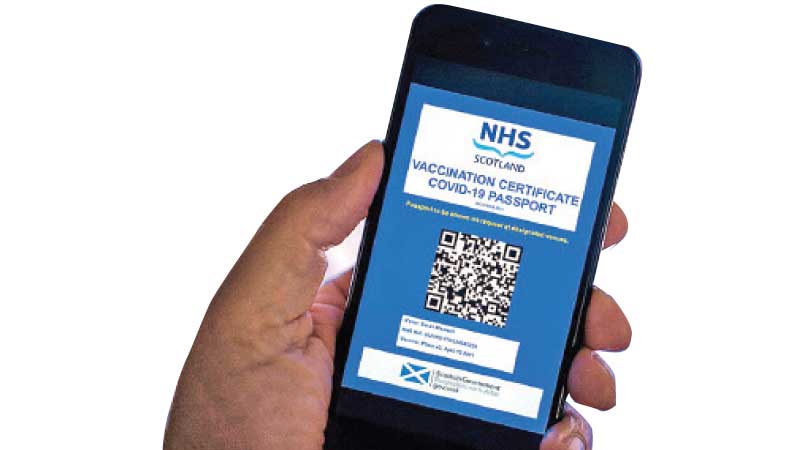While the government has shelved plans for Covid passports in nightclubs and other crowded places in England, at least a dozen EU countries now operate similar schemes for access to a wide range of venues and activities, from restaurants to team sports.
First introduced in Israel, Covid passports go by a variety of names, including health pass, green pass, safe ticket and corona pass. They consist of a paper or digital document – usually a phone app – carrying a QR code that provides proof you have been fully vaccinated against Covid, have recovered from the virus, or have tested negative.
Within the EU, some countries have developed national Covid passes compatible with the European digital Covid certificate, which is designed to facilitate travel across the bloc. Others have simply adopted the EUDCC for domestic use.
Austria, Belgium, Cyprus, Denmark, France, Germany, Greece, Hungary, Ireland, Italy, Luxembourg, the Netherlands, Portugal and Slovenia are among the EU countries to have introduced some form of Covid pass.
Some countries have tried, but failed: in Spain, the regional governments of the Canaries, Galicia, Cantabria and Andalucía wanted to to introduce them but were denied by respective regional high courts and by Spain’s central high court. Others, such as Sweden, have adopted the EUDCC to allow travellers to enter the country and citizens to travel easily within the bloc, but do not require it for access to venues and activities, saying they prefer to open up for everyone at the same time.
Denmark introduced its coronapas in April and has now – with 80% of the population aged 12 and over fully vaccinated – suspended it because it is no longer needed. Nightclubs, the last venues where a pass was required, become exempt last week.
The rules vary widely from country to country.
France’s health pass is required for cinemas, theatres, museums, restaurants, bars, cafes (including terraces), clubs, some shopping malls, long-distance transport, organised sports, and public events such as concerts and meetings. Its use will be extended to all over-12s from the end of September.
Italy’s green pass is similar, but does not extend to cafe or restaurant terraces. Some German states require a Covid pass for access to indoor dining. Austria includes hairdressers in its list, Luxembourg includes shops, and Portugal hotels.
Some countries adjusted their rules during the summer: spiralling case numbers in the Netherlands, for example, prompted the government to temporarily suspend its coronavirus entry pass scheme allowing restaurants and bars to open at full capacity. If their primary aim was to increase the number of people getting vaccinated, some schemes – certainly in more vaccine-hesitant countries, such as France – do appear to have been successful.
Last December, according to polls, 60% of the French were unsure if they would get jabbed, soon or at all, against Covid. Since mid-July, when the president, Emmanuel Macron, announced the scheme, over 13 million more people have got a first dose.
France has now administered at least one shot to about 88% of adults and 85% of children aged 12 and over, while protests against the pass, which has majority public support, have slid to about 120,000 demonstrators nationwide from twice that number in July. Several EU countries that operate Covid passes have pulled ahead of the UK in terms of the percentage of their total populations to have received at least one dose – although it is hard to say for every country to what extent the pass is responsible. (The Guardian)



Add new comment